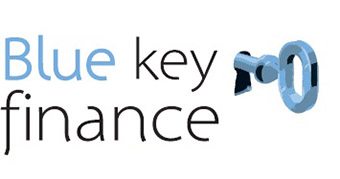Loans involving family and friends
Has a family member or friend asked you to be a ‘co-borrower’ or guarantee a loan for them? Before you say yes, think carefully – you could lose not only your money, but valuable assets such as your house or car.
What is a guarantor or co-borrower?
Co-borrower
You are a co-borrower if you sign a loan with someone else.
In most instances both you and the other co-borrower are jointly and individually liable for the debt. If the person you borrow the money with is unable to pay their share of the loan, you will be responsible for repaying the full amount outstanding.
Guarantor
If a credit provider is not willing to give a loan to a person on their own, they may ask for a guarantee. If you sign a guarantee for a friend or family member, you are known as the ‘guarantor’ of the loan.
When you sign your name as a guarantor, you are legally responsible for paying back the entire loan if the other person cannot or will not make the repayments. You will also have to pay any fees, charges and interest.
As a guarantor, you don’t have the right to own the property or items bought with the loan.
Reasons you might have to say no
Think very carefully before guaranteeing a loan. Is there another way you could help without becoming a guarantor? For example, could you contribute to a deposit so that a guarantee is not needed?
Consider how you will pay back the loan if your friend or family member can’t. Can you afford the repayments? Do you have savings you can use or assets you can sell to pay the debt? If you do have to use your own money or assets to pay off someone else’s loan, you could be risking your financial future.
What about your relationship with the borrower if something goes wrong? It may be better to say ‘no’ now and avoid damaging your friendship.
The effect on your future loans and credit report
You will need to tell your credit provider about any loans you are a guarantor for, when you apply for credit. They may take into account the loan repayments on the loan you have guaranteed when they assess your ability to repay a new loan. This may stop you getting a new loan even if the person who’s loan you are guaranteeing is making the repayments.
You may end up with a bad credit record if you and the borrower can’t pay back the guaranteed loan. The loan will be listed as a default on non-payment on your credit report, making it hard for you to borrow money for several years.
If you provide security, such as a mortgage on your home, to guarantee someone else’s loan, you may not be able to use your home as security for your own loan. You may even end up losing your home if you don’t pay out the guaranteed loan.
You may also be made bankrupt by the credit provider. Even assets you haven’t offered as security for a guarantee may then be sold to pay the outstanding debt.
Questions you may ask before you sign the loan
Before you guarantee a loan, ask the credit provider the following questions.
Q What type of loan am I guaranteeing?
Be very careful about guaranteeing a loan that has no specific payback time, such as an overdraft. This kind of loan could potentially go on forever.
Q What should I check if I am asked to guarantee a business loan?
Find out everything you can about the business. Ask for a copy of the business plan to understand how it intends to operate. It’s also important to look at the business’ financial state. For example, check past financial statements and speak to the business’ Accountant to make sure the company is in good financial health and has good prospects.
Q Is the guarantee for a fixed amount of money, or is it for the total amount owing?
You are better off guaranteeing a fixed amount because you will know exactly what you owe. If you sign a guarantee for the total amount owing, you will be legally responsible for what the borrower owes now and in the future. This could include interest, fees, charges and penalties. If you think there has been an increase in the amount you agreed to guarantee without your consent, seek legal advice straight away.
Q Exactly how much am I guaranteeing?
The guarantee should clearly describe how the amount of money you owe will be calculated if the worst happens and the borrower does not pay. If you are not comfortable with the amount, ask if you can reduce it.
Q Do I have to put up assets as security?
If the loan is not for personal, household or domestic purposes, you may be asked to put up an asset such as your house as security. This means the credit provider can sell your house to pay the debt if the borrower defaults on their loan.
Q What should the loan contract tell me?
Get a copy of the loan contract from the credit provider. It should tell you:
- The amount of the loan
- The interest rate, fees and charges
- Whether the loan is secured (where the borrower has to put up an asset, such as their house, as security)
- How long the borrower has to repay the loan
- The amount of the repayments
If you haven’t already, click here to download our FREE E-Book on “First Home Buyers” or email us instead and we’ll send it to you within 24 hours.




Leave a Reply
Want to join the discussion?Feel free to contribute!